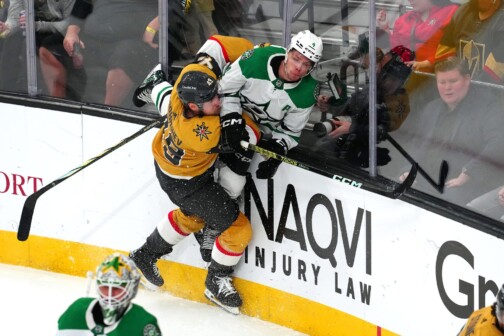For complete Horton Foote Festival coverage visit here.
Tolstoy may be right about the unique nature of unhappy families in general, but it must be true that southern clans have more than a hint of the universal in their striving misery, especially in the plays of Horton Foote. The Dallas Theater Center tosses its cowboy hat in the Foote Festival ring with its comedic interpretation of the domestic drama Dividing the Estate, a play that is both familial and familiar, yet never mundane.
Set in the fictional tiny Texas town of Harrison in 1987, the plot follows the listless, frustrated Gordon family led by crusty matriarch Stella Gordon (June Squibb) who’s tenuous grasp of an estate in decline is constantly assailed by forces outside (taxes, plummeting real estate values), and inside (untimely deaths, a trio of scheming offspring and their hangers-on). To complete the immediate Gordon circle there’s layabout Lewis (Kurt Rhoads) a drunken man-child, the goes-along to get-along Lucille (Gail Cronauer), and showy, money hungry Mary Jo (Nance Williamson). In other, less capable hands than Foote’s, the children et al might inhabit the land of cliché ciphers instead of the richly detailed and comforting characters they are.
There is much talk, from some more strident than others, about the titular concern of how to divvy up what’s coming to whom while dealing with the themes of frustration, social claustrophobia, personal identity, and a boatload of other concerns of the southern laugh-before-you-cry mythos.
Director Joel Ferrell’s meticulous, humorous, and loving interpretation of the play facilitates incredible acting performances from a smoking cast who thankfully understand the twangy musicality of the language.
Squibb’s Stella is a doddering yet sharp presence, engaging in high dudgeon-y small town gossip, but sensitive and compassionate to family strife. Williamson as the erstwhile Gordon daughter who moved to the more tony digs of Houston is a salty whirlwind of wanting. Her impressive array of withering looks does not fail to tickle the audience. Rhoads in perfect bushy mustache and period glasses transforms himself into Lewis, the perpetually money-troubled prodigal son who never left the nest. His performance is highly amusing whether he is drunk, or sober, or drunk again.
Another highlight is Doug (Akin Babatunde), the Gordon’s 92 year-old house servant. Babatunde has a booming baritone voice with flawless tempo. His drawing out of lines and words for effect, his variation of volume and pitch, and his sing-songy pronouncements are a pleasure to the ear.
The rest of the cast is rock solid with standouts Matthew Gray as the dependable Son, Lynn Blackburn as his fiancée Pauline, and Kieran Connolly as Mary Jo’s long suffering husband Bob.
Costume design by Claudia Stephens is mostly Texas 1980’s pitch perfect with the neon nightmares of Mary Jo’s adult daughters being the only missteps. John Arnone’s design of an aging plantation-style interior with crystal chandelier and light fixtures, marble-like columns, and classy formal drawing room furniture sets the right tone without being distracting.
It’s a smart trick to delve into personal pathos without pandering, and finding the humor without minimizing what already may seem too small or particular in its down home scope. Foote has achieved no small feat with this uncluttered, tone poem of a play, and Ferrell and company do their darnedest to make it shine.






